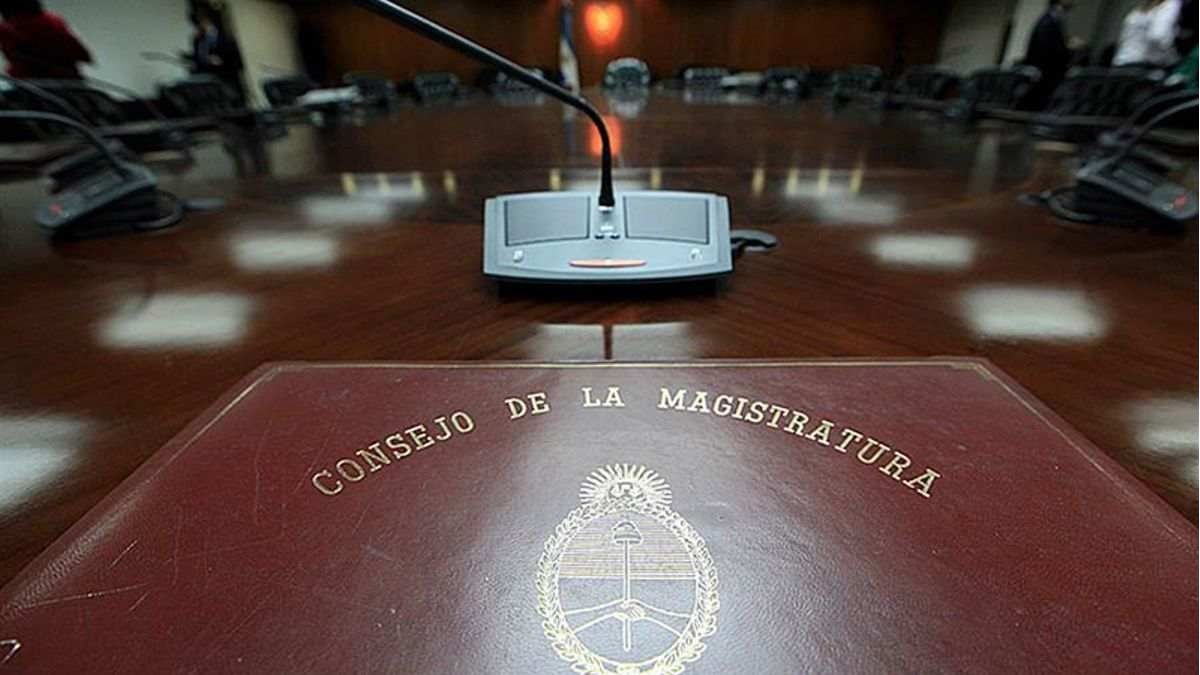The Council of the Judiciary voted this Wednesday to elevate another 7 lists of candidates for judges, in some cases, to cover key vacancies, in the commercial court. This added 62 lists of candidates elevated to the Executive Branch, so far in 2024 and added pressure to the Government that continues without exhausting the stock that it has accumulated since it began its administration and that today, is in the middle of negotiations with senators and governors to test support for the candidates for the Supreme Court, Ariel Lijo and Manuel García Mansilla.
Since Javier Milei took office, not a single federal, national, prosecutor or defense judge has been appointedwhich has exacerbated part of the systemic problem of the Judiciary, which is the vacancies. This delay in the submission of the applications for approval by the Senate has now resulted in the senators being part of the haggling exercised by the senators to exchange their potential votes to support the candidates for the Court.
The Government believes it is strengthening itself with cards to play in the negotiation for names that could interest the governors; the senators who do not know if they will renew their seats next year in the legislative elections are excited by the idea of taking home some appointment that will position them better; and the governors want to define the judicial map of their districts. In addition to the 62 nominations, there are more than 50 that the Government called for recall when it took office. and that had been sent by the administration of Alberto Fernández. They were never returned, so they are piling up.
In terms of what it represents for the Judiciary There are almost 150 names in play -including its complementary lists-, which makes it attractive in the eyes of negotiators but tremendously chaotic for the normal ordering of the justice system. And it adds the risk of getting bogged down in the face of so many conflicting interests.
Political clashes in the plenary session
The meeting had some political sparks between the councilors with several current issues that were included in the presentations. The Kirchnerist bench took advantage to throw at Judge Agustina Díaz Cordero her alleged participation in a group of chats with the LLA deputies who made a visit to the prison to those convicted of crimes against humanity and were devising a legal way to mitigate their sentences or transform them into house arrest, which led to a scandal. “I will answer in writing”responded the vice president of the Council to the complaints of her peers.
The plenary approved the budget for the Council for 2025. This includes the maintenance and salary expenses of the entire national and federal judiciary. The estimate was more than $2 billion for the next fiscal yearwhich is accompanied by warnings from the representative of the Executive Branch in the Council, Sebastian Amerio who already made it clear to the Administration and Finance Committee (CAF) that he wishes Luis Caputo luck with this request. Basically, it is a source of trouble that was quelled this year by surgical increases in budget allocations that went against the general chain saw.
The third controversial point was the almost unanimous rejection of the beatings that the police handed out yesterday during a demonstration organised by the UEJN of justice employees, which is almost part of the landscape – due to its usual nature – in the wage claim. Inexplicably, the officers proceeded to evict the workers and generated scenes of repression. Amerio himself abstained and promised to ask for reports on what happened.contrary to the Government, which boasts of this type of act as a show of force. Horacio Rosatti was one of those who voted to reject it.
What was voted on in the Council
Today, the Council chaired by Horacio Rosatti approved the referral to the Executive of Contest No. 478 intended to fill four vacancies in the National Chamber of Commercial Appeals. This jurisdiction gained strong prominence with the Correo Argentino case but also with cases that have a political angle. Precisely, Judge Marta Cirulli, who intervened in the process in the first instance, now wants to be a judge.
Another surprise is in the fourth list where he was selected. Jorge Macri’s Justice Secretary in the city, Jorge DjvarisIt is customary that when an official ends up on a shortlist while in office, he or she declines his or her candidacy. However, the jurisdiction is so strategic that the ending remains open. Especially when the government does not give any clues about addressing the urgency of the vacancies and has postponed the appointments as much as possible.
In addition to all that, the Council approved competition No. 436 for the federal court of San Carlos de Bariloche. It seems far away but that position becomes relevant when it processes part of the protection against the Land Law contained in DNU 70/2023, or when Mapuche occupations occurred in Villa Mascardi. The selections for two positions in the Federal Criminal Court of Comodoro Rivadavia, Chubut, were also completed.
Lists of associate judges were also sent which – as is similar to permanent appointments – can act in the event of vacancy, tie or recusals – none other than in the Federal Chamber of Mendoza, the courts of General Roca, the Court of Appeals of Mar del Plata and the Social Security Chamber.
Source: Ambito
I am Pierce Boyd, a driven and ambitious professional working in the news industry. I have been writing for 24 Hours Worlds for over five years, specializing in sports section coverage. During my tenure at the publication, I have built an impressive portfolio of articles that has earned me a reputation as an experienced journalist and content creator.




